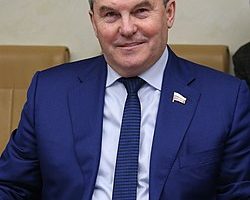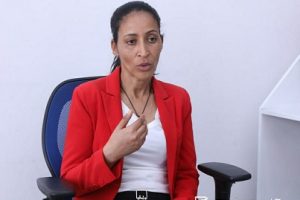
Feven Genene
Today’s guest, Feven Genene, is a Coordinator of African Fine Coffees Association in Ethiopia. She was born and grew in Addis Ababa, Ethiopia. Attending primary and secondary education in the schools found at the capital. After completing her high school education, she went to Haramaya University where she received a Bachelor’s degree in Computer Science and Marketing. Feven has taken various courses on market analysis, coffee quality, and coffee processing to gear up for her dream position.
She later on worked with USAID Agriculture Program, Coffee Quality Institute and other international and local organizations. Feven has been serving the African Fine Coffees Association for nearly six years as the Ethiopian representative. The Ethiopian Herald had a short stay with Feven in connection with the upcoming African Fine Coffees Conference & Exhibition and 1st African Coffee Week from February 6-10 in Addis Ababa, Ethiopia. Have a nice read!
What does AFCA mean? What is the primary reason for African countries to establish it?
The African Fine Coffees Association (AFCA) is one of the biggest regional coffee entities that represent eleven coffee growing countries, including. AFCA’s mission is to convene, motivate, and professionalize the African fine coffee sector through building capacity, creating market linkages, and hosting coffee events.
It facilitates members’ attendance at premier specialty coffee events held worldwide to promote and prominently feature their finest coffees. Additionally, AFCA annually hosts the largest coffee event in Africa, the African Fine Coffees Conference & Exhibition.
The association organizes trade missions for its members to selected target markets to enhance market linkages and build business relations. AFCA also delivers education programs and business insights to enhance its members’ businesses, with a focus on accessibility.
In addition, AFCA organizes and conducts national coffee cupping competition, coined the “Taste of Harvest” to promote the highest quality coffees within its member countries. The national competitions are held in each member country, and culminate at the Regional Taste of Harvest Competition held each February at the African Fine Coffees Conference & exhibition, where the winning coffees from each country are graded by a panel of international and regional coffee professionals.
Creating an economic hub through networking specialty coffee importers/ exporters, leading the development of an East African specialty coffee exchange, promoting quality from tree to cup through vigorous education programs, a robust network, and strategic alliances.
One of our goals is to provide market opportunities to African farmers and exporters’ and that they have the latest information on coffee pricing, financing, and quality control.
AFCA is now preparing to host the 20th edition of the African Fine Coffees Conference & Exhibition this February. Would you further brief us please?
Founded in July 2000, the African Fine Coffees Association (AFCA) is a member-based, non-profit association that represents producers, traders, government, and other support organizations.
AFCA is currently made up of 11 member countries, including Burundi, Cameroon, the Democratic Republic of the Congo (DRC), Ethiopia, Kenya, Malawi, Rwanda, South Africa, Uganda, Tanzania, and Zambia. The Secretariat is headquartered in Kampala, Uganda, with representative staff in other member countries.
This year, AFCA is excited to announce its partnership with the Inter- African Coffee Organization (IACO), the Robusta Coffee Agency of Africa and Madagascar (ACRAM), and the Ethiopian Coffee and Tea Authority (ECTA) for the grand occasion of hosting the event’s 20th edition in Addis Ababa, Ethiopia, from February 6-10, 2024. The theme “Specialty Coffee at Origin” sheds light on the high-quality coffees being grown and consumed in producing countries. It also invites coffee professionals to explore Ethiopia, the land of origins.
In this landmark 20th edition, the event promises a lineup of esteemed international and regional speakers, an expansive exhibition hall, engaging workshops, exclusive B2B cupping sessions, and vibrant social events! Additionally, we are proud to host the Africa Barista Championship and the Regional Taste of Harvest Competition.
Hosting such an international coffee exhibition and conference is quite imperative to promote Ethiopian coffee, as the main coffee buyers will come to Ethiopia and meet our coffee traders. The paper presented at the conference is expected to illuminate challenges and find the best solutions. A coffee safari—a tour of coffee growing regions—is also part of the event.
Except for consumers, all coffee stakeholders, including coffee buyers and sellers, international NGOs, government bodies, and coffee buyers drawn from Europe, Asia, and the Americas, are expected to participate in the conference. Coffee growers from African countries will also be part of the conference by promoting what they produce in a booth rented for this purpose. Those who produce equipment related to coffee will also prop up their products in the exhibition.
Other competitions, such as the Taste of Harvest, which is a coffee cupping competition between African coffee growers who won the national competition held in their respective countries, are also expected to identify the champion of the year. There is also a competition between African baristas.
In order to make the conference successful, the national committee is already established and has been doing various tasks to make the conference successful. Local and international coffee companies have already booked up to 120 booths to promote themselves.
The African Fine Coffees Conference & Exhibition has increasingly been regarded as pivotal in providing a unique opportunity to exhibitors showcasing the best coffees and affiliated services in the African coffee sector. The exhibition floor provides ample opportunity to network with coffee luminaries from all over the world. This will be the perfect platform for gathering valuable coffee information, building trade relations, and facilitating buyer-and-seller interaction.
Taking part in this international conference, what sort of benefits African coffee growing countries gaining?
AFCA, mainly works as a platform to connect buyers and suppliers, including the value chain from coffee producers, exporters and importers, and roasters.
Since its inception, AFCA has been creating a network to connect the value chain and greater value for the coffee subsector. In the upcoming conference, we are expecting upwards of 1,000 attendees from around the world, including Europe, Asia, the Americas, to connect directly with farmers and exporters from across Africa. So, one of the achievements we made so far is, we have created a largest platform in Africa and connected coffee sector players.
With a vision of building capacity of its members, AFCA offers various trainings so as to fill the knowledge gaps. In the coffee growing countries, we have members from individuals’ farmers to large scale importers. Hence, we are working together with members finding ways and means of promotion that make them competitive in the international market. So, we provide trainings for farmers to come up with high quality products in order to connect them with the international buyers and importers.
Many African countries may have an interest to be member of AFCA. Are the doors open for anyone wishes to join it?
Most of our member countries are coffee producing. Previously, when AFCA come in to being, it was named East Africa Coffee Association. After a while, the name is changed after the other African countries joined it. At this instant, countries that are not producing coffee are our members. South Africa, for instance, is not a coffee growing country nevertheless it came to membership due to its large coffee customers.
We are now working with largest coffee consuming African countries such as Egypt, Nigeria, and Algeria with a vision of expanding membership and this way we want to bring all the African countries to become members. As AFCA is working with inter Africa trade platform, we have a desire to export coffee to Nigeria, Egypt and Algeria. As it is one of our projects, we work in that.
How do you evaluate coffee trade before and after the establishment of AFCA?
Africa needs to have one responsible organization or entity that brings in all of us in the coffee value chain as there are many players in the coffee sector including governments and the small holder farmers. So, we have been able to bridge the gap in the producers, policy makers, importers, exporters and every one in between. So, we have been able to bridge that gap with in the value chain.
After the establishment of AFCA, we have seen improvements in price. Now, farmers are getting up to date information about the coffee in general and its price in particular. Due to various constraints, we are not reaching all the members in AFCA, farmers in the member countries have got trainings. We have different projects that we do together with our partners in each member country including the government itself. We also work with farmers to improve coffee quality and the way of getting better pricing. So we have been able to achieve that. That does not mean that we relied in farmers alone, we do the same with the exporters as well. So, farmers and exporters have been able to get more access to the market and get better pricing on coffee improving quality product as well.
Let us move towards another important issue which is called European Union Deforestation Regulation (EUDR). How do you understand it?
The EU Deforestation-Free Regulation (EUDR) is the new EU initiative to limit deforestation caused by agricultural activities all over the world. The new regulation will see new mandatory due diligence requirements for EU businesses due in 2024, massively expanding upon the scope of, and eventually replacing, the EU Timber Regulation (EUTR).
As we all know, Europe is one of the largest importers of commodities linked to deforestation, including 50% of the world’s coffee and 60% of all cocoa. These commodities alone accounted for over 25% of global tree cover losses from 2001 to 2015.With such a significant role in the market, the deforestation regulation aims to reduce the impact that products bought by EU citizens have on the world’s forests and woodland areas. It is critical for the route to net zero, and the EU hopes to lead by example. Similar regulatory requirements could follow in other markets, including the UK.
The EU defines those obligated by the EU Deforestation-Free Regulation (EUDR) as ‘operators’ and ‘traders’. Operators (companies that first place products in the single market) will be required to implement due diligence on their supply chains to ensure they are deforestation- and forest-degradation-free, while traders will be responsible for storing and sharing information on their supply chain with operators.
The proposed deforestation-free regulation targets those commodities and some of the products derived from them, like chocolate, leather, and furniture, with the greatest impact on deforestation.
As AFCA, we have a session to explain the EUDR regulation to all the attendees, including Ethiopians as well to the EU representative who will be attending in this event. Afterward, being well aware of the regulation, there will be a platform where farmers, policy makers, exporters deliberate on. One of the biggest platforms we are having in coming February consists of that as well.
As the AFCA member countries are highly relied on coffee export, Will the EUDR have negative impact on coffee export trade?
Yes, it is going to have an impact but I feel like it is going to be a process. For us receiving or hearing about this EU regulation, we will start studying from now on. It may be hard at this juncture to say something about it. However, we will raise awareness of members on how the EU regulation is going to be affecting the sector.
I think we will go to that trend as it is coming up. So, we are learning again to meet that expectation that the EUDR has been putting in place. As the regulation might affect the previous working system, we will learn how to proceed next through process. However, I do not personally see a problem in the near future.
If you want to add any more points, please take the chance.
I would like to express my appreciation to the Ethiopian government, the Ethiopian Coffee and Tea Authority and other stakeholders who have partnered while we prepare this conference and exhibition.
Thank you so much.
It is my pleasure.
BY GIRMACHEW GASHAW
THE ETHIOPIAN HERALD SATURDAY 3 FEBRUARY 2024





